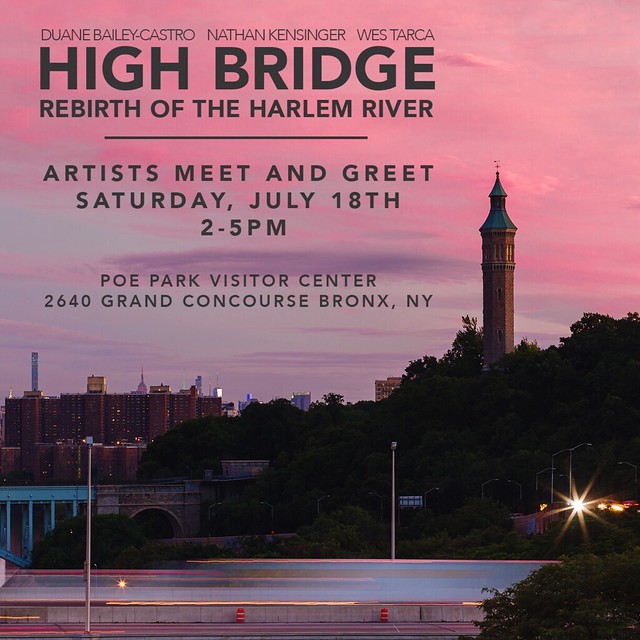Life in the Navy Yard
 June 30th, 2010 -
June 30th, 2010 -
In May of 2009, a unique sculpture was installed in the Brooklyn Navy Yard. Created by Lisa Kirk, this sculpture was named House of Cards (Maison des Cartes). Described as "a show model 'shanty timeshare' built from 52 separate pieces of found materials," the structure was installed next to an empty, fire-scarred warehouse. It was to remain there for one year. Participants could purchase timeshares in the House of Cards starting at $199.99 per week. "In the current economic crisis... shareholders will have the opportunity to experience shanty living," promised Kirk's gallery Invisible Exports. Amenities included no plumbing, no running water, a bucket for a toilet, two hammocks made from construction fencing, and an oil barrel for bonfires. Despite the many questions that this installation raised, a large number of people purchased timeshares. Several months were quickly booked in advance.
After negotiating a sublet from a shanty shareholder, I was given almost unlimited access to the grounds of the Brooklyn Navy Yard. Over the course of the following year, I documented day-to-day life in the yard. Neighbors showed off their busy drydocks and warehouses, buildings were gutted and renovated, streets were paved. However, for such a large and active industrial zone, the Navy Yard still contains an incredible amount of abandonment. Alongside previously photographed spaces like Admirals Row, Building 128, and Building 1, there are many other empty buildings, an unused drydock, abandoned cranes, and herds of feral cats. The following photographs document some of the places visited over the last year.
Appropriately enough, the House of Cards collapsed before its one year run was complete. No trace of the structure remains.
---
In July 2010, selections from this photo essay were featured in an article I wrote for The New York Times: The Local titled "A Photo Tour of Brooklyn's Navy Yard." For more of my photo essays about the Brooklyn Navy Yard, click here.
























You are the man, Nathan! Great work as always.
ReplyDeleteI so enjoy visiting this blog -- your images always evoke such an incredible response. Powerful use of photodocumentary. I was wondering if you'd consider posting a little technical blurb with your essays for newbie photographers such as myself -- what's hanging on your neck? what do you carry? what's the best way to sneak into a sealed area :) I'm always curious to see what folks are using to capture their images but i understand it's the artist, not the camera.
ReplyDeleteWow, they, even have an abandoned rocket ship!
ReplyDeleteNathan is indeed a talented artist but my comment is more on this exhibition: in a city built on excess and comsumption could this exhibit exist. If someone really wants to understand living in extreme poverty and live in a shack, go to any rural parts of this country and you will have a much more authentic experience. It's sad that this exhibition has nothing to do with real life in the navy yard.
ReplyDeleteFantastic stuff Nathan. I have had the privilege of touring the Navy Yard on the rare occasion and it is such glimpse into urban decay, juxtaposed with the functionality it now holds for the small businesses and artists that make residence there. Have you checked out the book Asylum by Christopher Payne? Another terrific photo essay on ambandoned spaces (in this instance, old mental hospitals).
ReplyDeleteLove your work. Beautiful.
ReplyDeleteOutstanding photos, always a pleasure to view your work
ReplyDeleteHow did you get in?
ReplyDeletewhat a magnificent tract of unknown explorations.
I would do a lot to be allowed to photograph and explore the naval yard. Its guard posts and barbed wire are quite menacing
Is Dry Dock 1 a photograph? It looks so much like a painting!
ReplyDeleteHi Daniel -
ReplyDeleteIt is a photo!
- Nathan